EU Calls Iran’s Crackdown On Protests ‘Unjustifiable, Unacceptable’

The EU foreign policy chief has slammed Iran’s handling of protests as unjustifiable and unacceptable, hinting that the European Union may issue sanctions over the crackdown.

The EU foreign policy chief has slammed Iran’s handling of protests as unjustifiable and unacceptable, hinting that the European Union may issue sanctions over the crackdown.
In a statement on behalf of the EU, Josep Borrell said that “despite repeated calls for restraint, the response of the Iranian security and police forces to demonstrations has been disproportionate and resulted in the loss of lives as well as a large number of injuries.”
“The EU and its member states urge the Iranian authorities to strictly abide by the principles enshrined in the International Covenant on Civil and Political Rights, to which Iran is a party,” he said, calling on the Islamic Republic “to immediately stop the violent crackdown on protests and ensure internet access, as well as the free flow of information.”
The statement also urged “Iran to clarify the number of deaths and arrested, release all non-violent protestors and provide due process to all detainees.”
The EU also said the killing of Mahsa Amini – whose death in custody of hijab police triggered -- must be duly investigated and any proved responsible for her death must be held accountable.
“The European Union will continue to consider all the options at its disposal ahead of the next Foreign Affairs Council, to address the killing of Mahsa Amini and the way Iranian security forces have responded to the ensuing demonstrations,” read the statement.
The Wall Street Journal’s journalist Laurence Norman quoted some unnamed diplomats as telling him on Sunday that "There will be EU sanctions on Iran over its crackdown on the protests.”
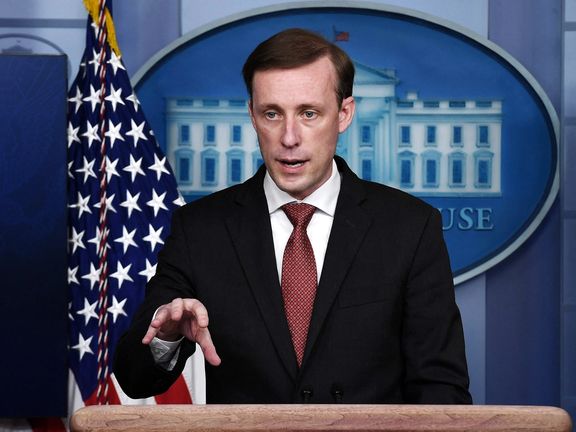
US National Security Advisor Jake Sullivan has said that negotiating with Iran over the nuclear issue will not stop Washington from denouncing the brutal repression of Iranians.
Speaking on CBS’s “Face the Nation” on Sunday, Sullivan said, “We’re talking about diplomacy to prevent Iran from ever getting a nuclear weapon. If we can succeed in that effort, and we are determined to succeed in that effort, the world, America and our allies will be safer.”
“And that will not stop us in any way from pushing back and speaking out on Iran’s brutal repression of its citizens and its women. We can and will do both,” he said in response to a question about whether Iranian mass protests -- triggered by the death of 22-year-old Mahsa Amini who died in custody of hijab police -- changes the US’s calculus in nuclear talks with Tehran.
“The fact that we are in negotiations with Iran on its nuclear program is in no way impacting our willingness and our vehemence in speaking out about what is happening on the streets of Iran.”
He mentioned President Joe Biden’s speech at the UN General Assembly on September 21 who said the US stands “with the brave citizens and the brave women of Iran as they stand for their rights and their dignity.”
“We have in fact taken tangible steps to sanction those morality police who caused the death of Mahsa Amini,” Sullivan said, referring to the US Treasury Department’s sanctions. “We've taken steps to make it easier for Iranians to be able to get access to the internet and access to communications technologies that will allow them to talk to one another and to talk to the world.”
Enumerating the steps the Biden Administration has taken in response to the death of Mahsa Amini and Iranian protests in another interview, Sullivan said they learned from Obama's response to 2009 protests that sometimes the administration can "overthink" these things, emphasizing that the US will continue speaking out.
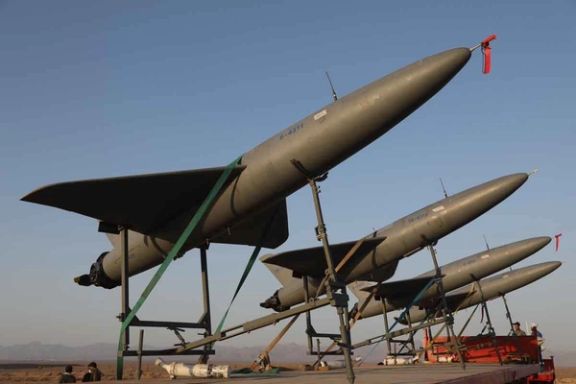
Ukraine has reportedly asked Israel to share intelligence on Tehran’s support for the Russian military in the war, as it downgraded diplomatic ties with the Iran for supplying drones.
Axios cited senior Israeli officials as saying that Israel's deputy director general for Eurasia Simona Halperin visited Kyiv with the Israeli ambassador on September 7 to establish a “dialogue channel” with Ukraine about Middle East issues in order to share information and intelligence and coordinate positions.
According to the unnamed officials, the Israelis held a meeting with Maksym Subkh, Ukraine's special representative for the Middle East, in which he stressed that Ukraine is opposed to the lifting of sanctions on Iran if a nuclear deal is signed, saying it will enable greater military cooperation between Tehran and Moscow.
Subkh also told the Israeli diplomats that Ukraine expects Israel to take a much clearer position regarding the Russian aggression and unequivocally support Ukraine, which Israel has avoided because of their own relations with Russia.
"The Israelis gave us some intelligence, but we need much more," a senior Ukrainian official confirmed, saying that Halperin asked Subkh for intelligence on Iranian involvement in the war.
Calling it "a collaboration with evil," President Volodymyr Zelenskiy said on Saturday that at least eight Iranian-made unmanned aerial (UAVs) vehicles had been shot down so far in the conflict.
US National Security Adviser Jake Sullivan warned in mid-July that Russia was preparing to acquire military drones from Iran. Later reports indicated a Russian delegation visiting Iran and assessing the potential of Iranian drones in its war in Ukraine.
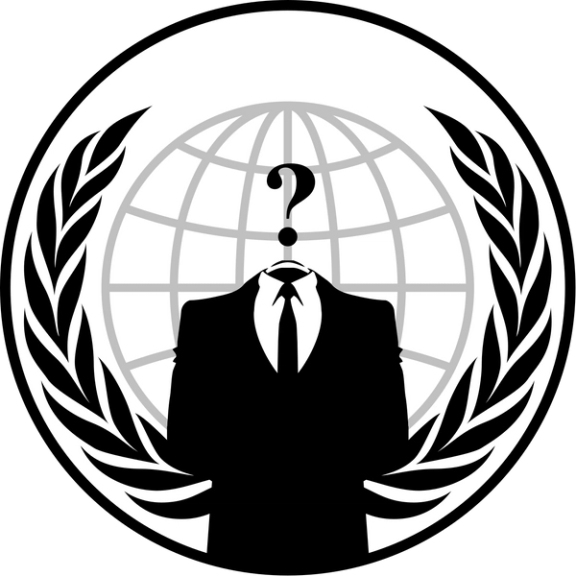
Hacktivist group ‘Anonymous’ has hacked the database of Iran’s parliament and the Supreme Audit Court, releasing the phone numbers and other data of all lawmakers.
In a video message published on Sunday, the group announced it has hacked the website of the parliament as part of its ongoing operation against the government of Iran in solidarity with the popular protests triggered by the death in custody of the 22-year-old woman Mahsa Amini.
“Our support for the Iranian protests will continue. As you all know, the government is trying everything to stop you. Don’t give up,” said a distorted voice on the video. “Do not leave the streets. Do not stop the revolution.”
“The Iranian parliament supports the dictator when it should support the people, so we are releasing the personal information of all of them,” the group said.
On Saturday, the hacking collective took down the website of Iran's state-run Arabic news network Al-Alam, a few days after it attacked the official website of Iran’s Supreme Leader Ali Khamenei amid the nationwide protests in the country. Both the Persian and English versions of Khamenei’s website are still down.
A number of state-run websites in Iran, such as IRGC-affiliated Fars news agency and the news website of the state broadcaster have limited access to their pages from abroad over fears of being attacked by the hacktivist group.
If Iran government blocks the people from accessing the internet, Anonymous will block the government from accessing the internet, the group has said.
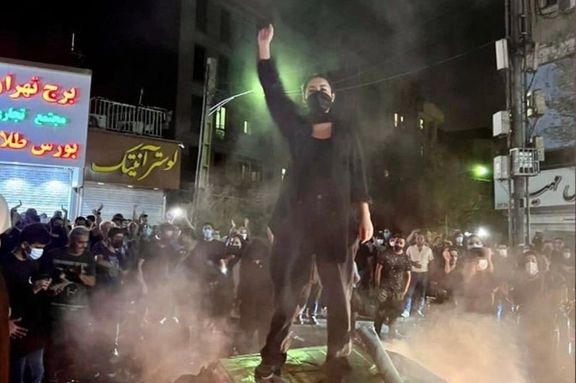
Iran's state-run television (IRIB) said Saturday evening that so far 41 have been killed in the protests and claimed that Tehran and other cities were “quiet”.
In its 20:30 special bulletin, the IRIB claimed that Tehran and many other cities had a “quiet night” while reports and footage on social media at the same hour indicated fierce protests confronted by security forces on the streets in the northern and western neighborhoods and suburbs of the capital.
Iran Human Rights (IHR) said Saturday at least 54 protesters had been killed by then. In many cases, handing over the bodies of the victims to their families was made contingent on agreeing to secret burials, IHR reported.
Protesters blocked roads, set fire to trash cans, and chanted slogans against the regime and the Supreme Leader Ali Khamenei who in his only public appearance Wednesday made no mention of the death of Mahsa Amini whose death in custody sparked the protests last Friday.
A video from Shiraz has captured the moment when an anti-riot police officer violently shoving a young woman and hit her head on the curb. Another video from Shiraz showing a young woman standing on a car with her hair falling on her shoulders and waving her headscarf leading the other protesters’ chanting “Down with the Dictator” has gone viral on social media.
Internet and even phone lines have been completely cut off in Oshnavieh, a town of around 40,000 in northwestern West Azarbaijan Province, where protesters drove the Revolutionary Guards (IRGC) out of its barracks and seized three bases used by the Basij, a militia controlled by IRGC, taking control of the town, with Kurdish majority population, on Friday.
Very little is known about the situation in Oshnavieh, but informed sources told Iran international that military forces are surveilling the town and its surrounding villages with helicopters and drones while preparing to deploy to the area.
State media, officials, Friday prayer leaders, and pro establishment social media users in the past few days have tried to claim that protesters attack or torch ambulances and public transportation buses.
Protesters have published several videos showing security forces using these vehicles for getting close to the heart of the protests or transporting those they arrest such as a video from Mashhad that shows an ambulance driving into a police station.
They have also claimed that protesters have torched mosques, burned the Quran and set fire to a religious banner used in ceremonies to mourn Imam Hussain, a Shia saint.
Many protesters believe these were perpetrated by agents of the state to incite religious people. A popular former national football (soccer) team player, Ali Karimi, who lives in the UAE, has called on protesters not to attack banks, women clad in black veils, and respect the Quran.
“Don’t join in with anyone who does these things because these are some of the plots of [regime agents to discredit] you my dear people,” Karimi tweeted Thursday. Videos posted on social media show protesters chanting Karimi’s name.
Authorities have resorted to what global Internet watchdog NetBlocks has called “curfew-style cellular network disruptions” to interrupt contact among protesters and leaking of footage from the protests. they have also restricted Instagram, WhatsApp, LinkedIn, and Skype as well as some popular videogames such as Clash of Clans the chatrooms of which could be used for communication among protesters, at the national level.
Hacktivists sympathizing with protesters have also been at work targeting the websites of the government and its affiliates including the website of the ministry of foreign affairs.
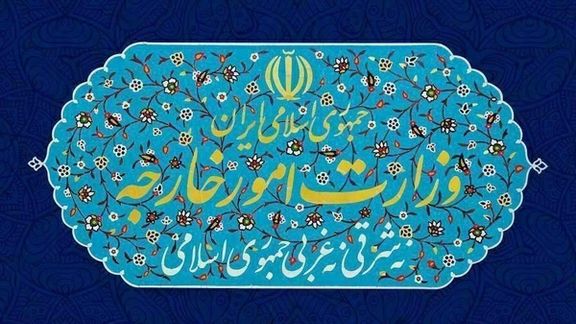
Iran’s foreign ministry has summoned the British ambassador in Tehran over what it calls “a hostile atmosphere” created by London-based Persian media outlets.
The official website of Iran’s government IRNA reported on Sunday that Simon Shercliff was called in by the ministry on Saturday to convey Tehran’s protest to the UK government for hosting the media channels.
There are three London-based major Iranian satellite TV channels beaming programs into Iran; Iran International TV, Manoto TV and BBC Persian.
During the meeting, the British envoy was told that by hosting these media outlets, London is interfering in Iran’s affairs, and that Tehran considers this an action against the national sovereignty of our country.
The ministry said that in recent days the media channels have put “incitement of violence and spread of riots” on top of their agenda, referring to the nationwide unrest following the death of Mahsa Amini, the young woman who died in the hands of hijab enforcement police.
The Iranian Foreign Ministry also summoned the Norwegian ambassador over “meddlesome” remarks by the Parliament President, Masud Gharahkhani, an Iranian-Norwegian in support of and solidarity with Iran’s protests, saying his "prejudgment” about the unrest is “wrong” and “unconstructive”.
Numerous protest rallies also have taken place outside the Islamic Republic’s embassies and consulates in cities around the world.
On Saturday night, two motorcycle-riding men threw a bottle of Molotov cocktail at the building of Iran’s embassy in the Greek capital Athens.